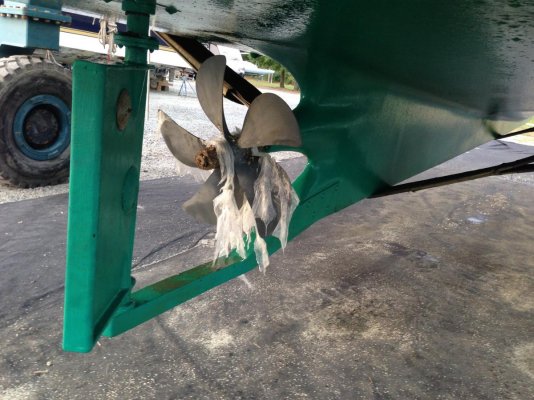ctjstr
Senior Member
- Joined
- Nov 24, 2017
- Messages
- 399
- Location
- United States
- Vessel Name
- "Convergence"
- Vessel Make
- Camano Troll
I suppose this could have gone in general discussion, but....
Curious how many folk carry a spare prop on their travels. On my just sold boat, (4388 Bayliner) I carried both spares and even a spare shaft. Thought it would be easier pulling one out of the engine room than having it shipped if I were some distance from home.
I don't have a spare on the new Camano I'm buying, but will probably watch for one.
As far as that is concerned, any other "absolute gotta have" spares folks carry? I'd expect normal stuff like impeller, filters and belts, but others items?
thanks
toni
Curious how many folk carry a spare prop on their travels. On my just sold boat, (4388 Bayliner) I carried both spares and even a spare shaft. Thought it would be easier pulling one out of the engine room than having it shipped if I were some distance from home.
I don't have a spare on the new Camano I'm buying, but will probably watch for one.
As far as that is concerned, any other "absolute gotta have" spares folks carry? I'd expect normal stuff like impeller, filters and belts, but others items?
thanks
toni

